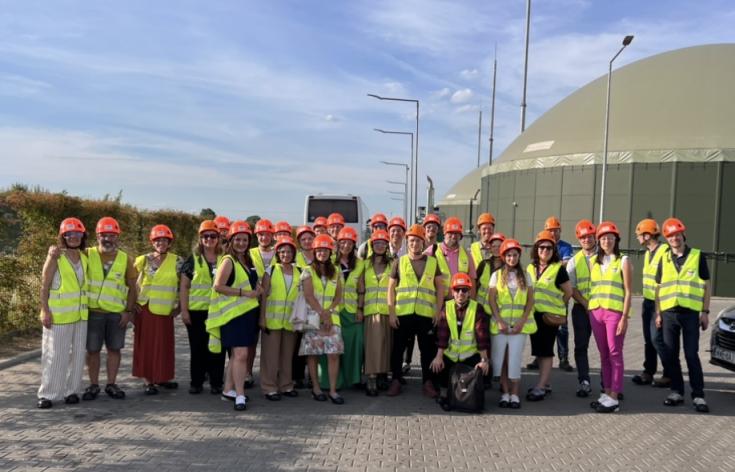Storytelling about the Study Visit in Poland

On June 18-19, 2024, the SIreNERGY project consortium convened for a highly productive study visit hosted by the Marshal's Office of the Mazovian Voivodeship in Warsaw, Poland. This gathering brought together consortium partners and their stakeholders, creating a vibrant exchange of knowledge and experiences that was both enriching and beneficial for all participants.
On-site Visits and Highlights
Gminne Przedszkole (Kindergarten), Michalowice Municipality
The visit to the Gminne Przedszkole in Michalowice Municipality showcased innovative practices in energy efficiency and sustainability in early childhood education settings. Participants observed the implementation of eco-friendly technologies and sustainable practices in the building's design and operation. This included energy-saving lighting systems, efficient heating solutions, and the integration of renewable energy sources. The visit provided valuable insights into how educational institutions can contribute to broader sustainability goals while fostering environmental awareness among young children.
KEZO Research Centre PAS
The KEZO Research Centre, part of the Polish Academy of Sciences, offered an in-depth look at cutting-edge research and technological advancements in the field of renewable energy. The centre specializes in developing innovative energy solutions, with a focus on integrating renewable energy sources into various applications. During the visit, the consortium members explored several ongoing projects, including advancements in solar energy, wind power, and energy storage systems. The KEZO Research Centre's commitment to bridging the gap between research and practical applications was a key highlight, showcasing the potential for academic research to drive real-world energy solutions.
Zawady Biogas Plant
The Zawady Biogas Plant visit provided a practical example of how waste-to-energy processes can contribute to sustainable energy production. This facility converts organic waste into biogas, which is then used to generate electricity and heat. Participants learned about the entire biogas production cycle, from feedstock collection and processing to biogas generation and utilization. The visit underscored the importance of biogas technology in achieving circular economy goals and reducing greenhouse gas emissions. It also highlighted the potential for biogas plants to support local energy needs while managing waste sustainably.
Conclusion
The study visit organized by the Marshal's Office of the Mazovian Voivodeship was a significant milestone for the SIreNERGY project consortium. By bringing together partners and stakeholders for hands-on experiences and direct observations, the visit facilitated a deeper understanding of practical applications in sustainable energy and energy efficiency. Each location provided unique insights and demonstrated the diverse approaches being taken to achieve sustainability goals across different sectors. The knowledge gained and connections made during this visit are expected to foster further collaboration and innovation within the SIreNERGY project, ultimately contributing to the broader objective of advancing sustainable energy solutions across Europe.